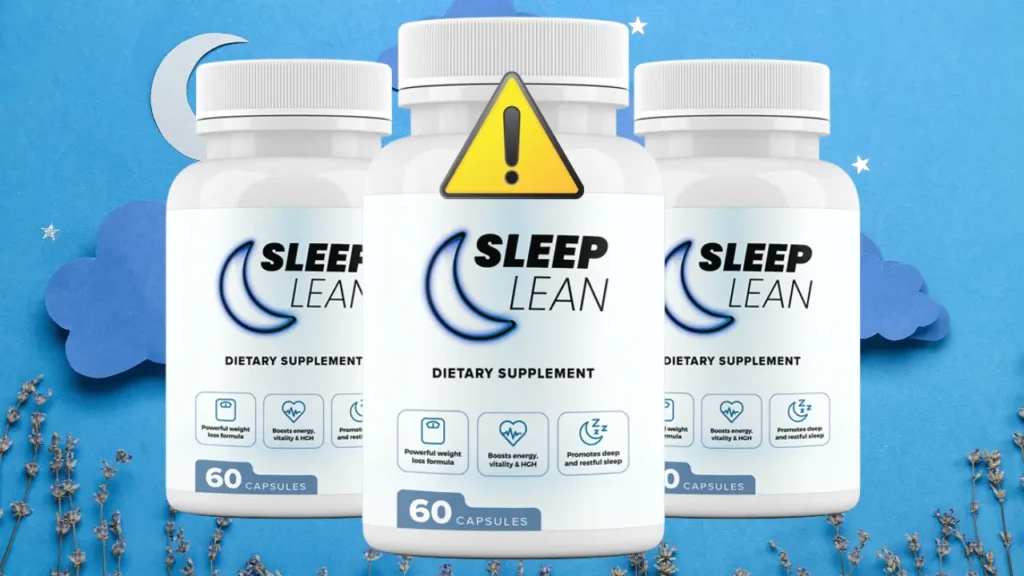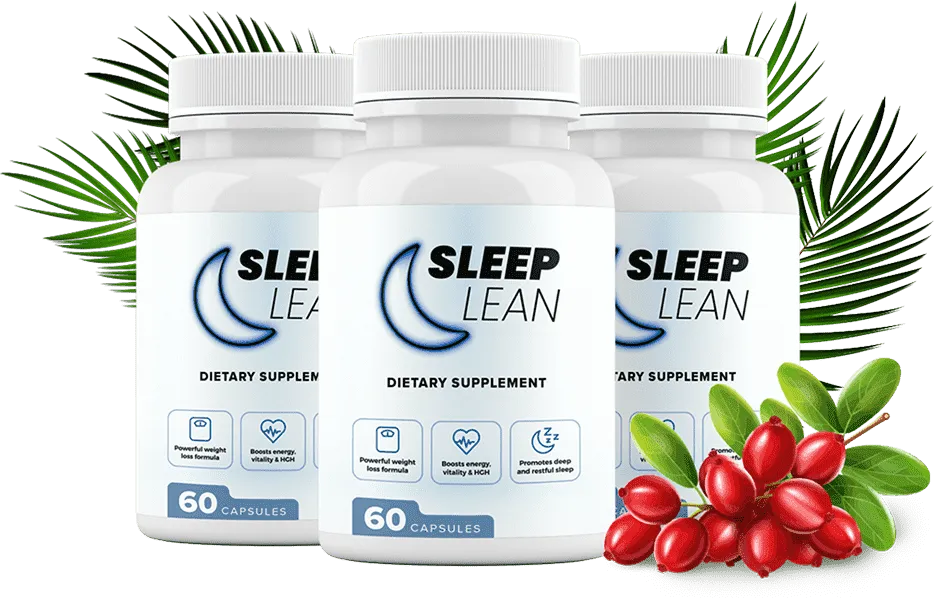SleepLean Review: Does It Really Work for Weight Loss While You Sleep?

Tired of trying diets and workout routines with no results? Have you ever thought that the key to your weight loss could be something you do every day: sleep? This is the promise of the SleepLean supplement. But does it really work?
In this comprehensive review, we’ll analyze SleepLean, its ingredients, how it affects your body, and whether it’s truly the key to losing weight while you’re asleep. Keep reading to find out the truth.
What is SleepLean and How Does It Work?
SleepLean is a 100% natural supplement designed to optimize your metabolism during the night. The idea behind the product is simple and brilliant: it enhances your sleep, a crucial period for body recovery and hormonal regulation, to accelerate fat burning and, consequently, weight loss.
It works in two main ways:
- Improves Sleep Quality: Ingredients like tryptophan and magnesium help regulate sleep hormones (melatonin and serotonin), leading to a deeper, more restorative rest.
- Boosts Nighttime Metabolism: With better sleep, your body recovers more effectively, which helps balance cortisol (the stress hormone) and optimizes your metabolism to keep burning calories even while you rest.

Does SleepLean Really Work? An Ingredient Breakdown
To determine if SleepLean truly works, we must look at its formula. The official page highlights that the product contains natural and scientifically-backed ingredients. The main components include:
- Tryptophan: An essential amino acid the body uses to produce serotonin and melatonin, the hormones that control mood and the sleep-wake cycle.
- Magnesium: An essential mineral that participates in over 300 biochemical reactions in the body. It helps relax muscles and calm the nervous system, contributing to better sleep.
- Vitamin B6: Crucial for converting tryptophan into serotonin.
- Chromium: Helps control blood sugar, which can reduce cravings for sweets and carbs, especially at night.
The combination of these ingredients suggests the formula is designed to work on two fronts: improving sleep and regulating metabolism. The effectiveness, however, depends on consistent use of the product.

Pros and Cons of SleepLean
To provide a transparent analysis, here are the main pros and cons of the product:
Pros:
- 100% natural formula with no known side effects.
- Acts on two fronts: weight loss and sleep quality.
- Can help manage anxiety and stress.
- Doesn’t require major changes to your routine.
- Comes with a 30-day satisfaction guarantee.
Cons:
- Results can vary from person to person.
- Effectiveness is enhanced with healthy lifestyle habits.
- Sold exclusively on the official website.

Is SleepLean Legit? Guarantee and Secure Purchase
One of the biggest concerns for online shoppers is security and product legitimacy. SleepLean is sold through secure payment platforms, ensuring your data is protected.
The company also offers a 30-day money-back guarantee. If you use the product and are not satisfied with the results, you can request a full refund. This shows the brand’s confidence in the supplement’s effectiveness.

Where to Buy SleepLean Safely
To avoid counterfeit products and ensure you get the genuine item with all its benefits and guarantee, you must buy only from the official website.
Don’t risk purchasing from third-party sites like Amazon or eBay, as you might receive a fake version that won’t deliver the promised results and could even be harmful to your health.
If you are ready to experience the power of sleep in your weight loss journey, click the button below to get your product securely:

CLICK HERE TO ACCESS THE OFFICIAL SITE AND ORDER SLEEPLEAN
Conclusion: Is SleepLean Worth It?
Based on our analysis, SleepLean is a promising option for those looking for natural support in their weight loss process, especially for those who struggle with sleep. The formula, satisfaction guarantee, and brand reputation are strong points.
If you’re looking for a complementary and natural solution for your weight loss goals, SleepLean might be exactly what you need.
See more CONTENT like this. Follow our PAGE

Hello! My name is Alan Teixeira and I am passionate about helping people live healthier, more balanced lives. From mindful eating to daily habits that promote physical and mental well-being, I believe that small, consistent changes can lead to powerful transformations.
I created this blog to share practical tips, reliable information, and thoughtful insights that can inspire you to take better care of yourself—with balance, mindfulness, and positivity.
If you are looking to improve your health, nourish your body, and build a lighter, more fulfilling routine, you are in the right place. Welcome!





